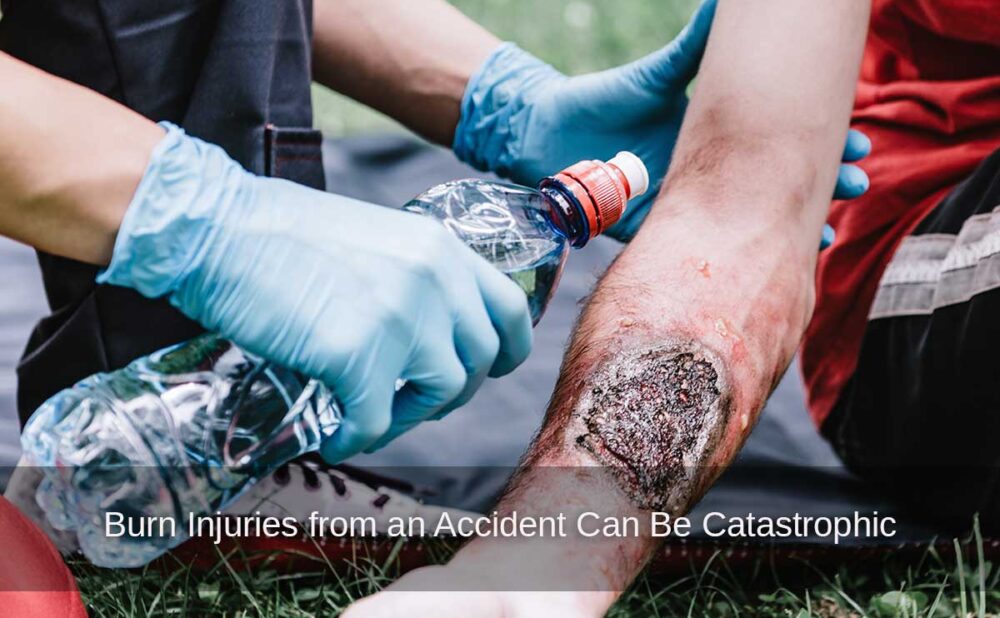Burn Injuries from a Georgia Accident Can Be Catastrophic
Burn injuries are some of the most severe and life-changing injuries that a person can experience. In Georgia, as in many other states, accidents that result in burns can occur in various situations—from car accidents to industrial accidents or even fires in the home. These injuries can be catastrophic, not only causing immediate physical pain but also leading to long-term emotional, financial, and psychological consequences.
Types of Burn Injuries
Doctors classify burn injuries into three categories: first-degree, second-degree, and third-degree burns. Each degree refers to the severity of the burn, with first-degree being the mildest and third-degree being the most severe.
- First-Degree Burns. These are typically superficial burns that affect only the outer layer of skin. While painful, they usually heal with minimal treatment and have little long-term impact.
- Second-Degree Burns. These burns affect both the outer layer and the underlying skin, leading to blisters and severe pain. Second-degree burns can cause lasting scars and require medical attention to avoid complications such as infection.
- Third-Degree Burns. These are the most devastating burns, affecting all layers of the skin and potentially deeper tissues. Third-degree burns can destroy nerve endings, leaving the affected area numb. These burns often require skin grafts and long-term rehabilitation. In some cases, they can be life-threatening, especially if they affect critical areas such as the face, hands, or genitals.
Causes of Burn Injuries in Georgia
Accidents that result in burn injuries can happen anywhere, but certain environments increase the risk of burns:
- Car Accidents. Georgia’s highways are busy, and car accidents, particularly those involving high-speed collisions or crashes involving hazardous materials, can result in dangerous fires. A car fire can ignite fuel or other materials, causing severe burns to anyone involved in the accident.
- Workplace Accidents. Georgia is home to various industries, including construction, manufacturing, and chemical production. Workers in these fields are at risk of burn injuries from machinery malfunctions, exposure to chemicals, or electrical accidents. Industrial explosions or fires can cause catastrophic burns that require extensive medical treatment.
- Home Fires. Georgia residents may also suffer burn injuries from house fires caused by faulty wiring, cooking accidents, or other household hazards. The intense heat and smoke from fires can cause extensive damage, resulting in severe burns.
- Electrocution. Electrical burns can occur when a person comes into contact with high-voltage power lines or exposed wiring. These types of burns can lead to both external and internal injuries, affecting muscle tissue, bones, and organs.
- Chemical Burns. Accidents involving chemicals, such as in laboratories or factories, can result in chemical burns. These burns occur when the skin comes into contact with strong acids, bases, or other harmful substances.
Consequences of Burn Injuries
Burn injuries can have far-reaching effects on a person’s life. In addition to the immediate pain and suffering caused by the burn itself, these injuries can lead to long-term complications that affect a person’s quality of life.
- Physical Scarring. One of the most noticeable long-term effects of a severe burn injury is scarring. Burn scars can be disfiguring and may require multiple surgeries to improve their appearance. In some cases, victims may need skin grafts to repair damaged areas.
- Psychological Impact. The trauma of a burn injury can have a significant psychological impact. Many burn victims suffer from post-traumatic stress disorder (PTSD), anxiety, depression, and body image issues as a result of the physical and emotional scars they bear.
- Loss of Function. Burns that affect joints, muscles, or organs can cause permanent disability. Victims may lose the ability to perform daily tasks, such as walking, eating, or dressing themselves, and may require long-term physical therapy to regain some functionality.
- Financial Strain. The financial cost of treating burn injuries is staggering. Medical expenses for burn victims can easily reach hundreds of thousands of dollars, especially if the injury requires surgery, rehabilitation, and long-term care. In addition, many burn victims are unable to return to work for extended periods, leading to lost wages and financial hardship.
Legal Options for Burn Victims
If you or a loved one has suffered a burn injury in an accident in Georgia, it is important to understand your legal options. Burn victims can claim compensation for medical expenses, lost wages, pain and suffering, and other damages caused by the accident. Georgia law allows victims to file personal injury claims against the responsible parties, including negligent drivers, employers, or property owners.
In some cases, burn victims may also be able to pursue claims under workers’ compensation or product liability laws if the burn injury occurred due to unsafe working conditions or faulty products. An experienced personal injury attorney can help navigate the complexities of these claims and fight for the compensation victims deserve.
Seeking Medical Care
Burn injuries require immediate medical attention. If you or someone you know has been involved in an accident resulting in a burn injury, it is crucial to seek professional medical care as quickly as possible. The severity of the burn will determine the type of treatment required, which may include:
- First-Aid and Pain Management. For minor burns, immediate first-aid and over-the-counter pain relief may suffice.
- Wound Care and Dressing. Severe burns require specialized care to prevent infection and promote healing.
- Surgical Intervention. For deep burns, surgical procedures like skin grafts or reconstructive surgery may be necessary.
Burn injuries from accidents in Georgia can be catastrophic, leading to significant physical, emotional, and financial challenges. Whether caused by a car accident, workplace hazard, or home fire, the consequences of severe burns are long-lasting. If you or a loved one has suffered a burn injury, it’s important to seek both medical and legal support to ensure the best possible outcome for recovery and compensation.





